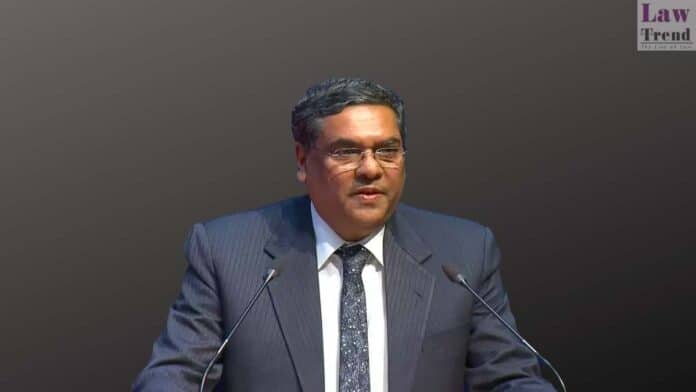On November 11, 2024, Justice Sanjiv Khanna will be sworn in as the 51st Chief Justice of India, marking a significant milestone in his legal career. Interestingly, however, this legal journey was not the path his parents had envisioned for him. Instead, they had hoped their son would pursue a career as a Chartered Accountant, given the financial stability and lesser volatility associated with the profession. For the Khannas, the legal field was seen as one marked by rigorous challenges, uncertain outcomes, and relentless dedication. Yet, Sanjiv Khanna chose to forge his own path, largely inspired by his uncle, Justice HR Khanna, a former Supreme Court judge known for his deep commitment to justice and integrity.
Justice HR Khanna was more than a distinguished legal figure to Sanjiv Khanna; he was a role model who embodied the principles of honesty, humility, and dedication. Justice HR Khanna was known within the family for his disciplined, self-reliant lifestyle. “He always considered his uncle an ideal and used to keenly follow his work,” said sources close to Sanjiv Khanna. Justice HR Khanna’s daily routine reflected his modesty; he not only polished his own shoes but also those of other family members and preferred to wash his own clothes, an endearing display of humility that left a deep impact on his nephew.
In tribute to his uncle’s legacy, Justice Sanjiv Khanna has meticulously preserved all of Justice HR Khanna’s judgments, notes, and registers, marking the meticulous record of a career that shaped his own. He plans to donate these valuable documents to the Supreme Court library upon his retirement, hoping to share this legal heritage with future generations.
The legacy Justice HR Khanna left behind is remembered most prominently through his landmark dissenting opinion in the 1976 ADM, Jabalpur vs Shivkant Shukla case, also known as the “habeas corpus case.” This judgment was delivered during the Emergency period when the government imposed stringent restrictions on civil liberties. Justice HR Khanna’s dissent in favor of individual freedom over state power became a defining moment in Indian judicial history. However, the decision led to his supersession in the judicial hierarchy, and in January 1977, when Justice MH Beg was appointed Chief Justice over him, Justice HR Khanna chose to resign, marking a principled stand that only deepened his legacy.
Justice Sanjiv Khanna’s journey has also seen many symbolic moments linking his path to his uncle’s. When he took office as a Supreme Court judge in 2019, he was assigned to the same courtroom where Justice HR Khanna once sat. In that room, his uncle’s portrait holds a place of honor—a tribute to a legacy that Justice Sanjiv Khanna has upheld with quiet reverence. Although he has never taken a photograph there, he plans to do so before his retirement on May 13, 2025, capturing a personal and professional homage to the man who inspired his career in law.
Justice Sanjiv Khanna’s path is marked by a commitment to upholding justice, a legacy strengthened by his parents’ values and his uncle’s example. His mother, Saroj Khanna, served as a lecturer at Lady Shri Ram College, while his father, Devraj Khanna, a lawyer and later a judge of the Delhi High Court, contributed to his grounding in both academia and the judiciary.




